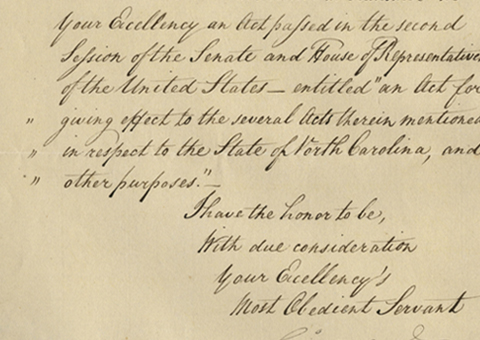The Original Receipt for Publication of Chopin’s Final Numbered Opus: Opus 74, Polish Songs, Signed by His Mother and Sister as His Heirs, and by His Publisher Schlesinger


Although Frédéric Chopin is best known for his works for piano solo, among his output are a number of songs for voice and piano, set to Polish texts. All but one of the texts of the songs were original poems by his Polish contemporaries, with most of whom he was personally acquainted....
Although Frédéric Chopin is best known for his works for piano solo, among his output are a number of songs for voice and piano, set to Polish texts. All but one of the texts of the songs were original poems by his Polish contemporaries, with most of whom he was personally acquainted. Chopin wrote these works at various times, from perhaps as early as 1827 when he was 17, to 1847, two years before his death. Only two of them were published in his lifetime. Chopin’s widowed mother, Justine, and his sister, Isabelle Chopin Barcinska, acted as his executors after his death, and they sought to give the world the benefit of those works he had not himself published during his lifetime.
Adolph Martin Schlesinger established a publishing house in Berlin in 1811. At first he published only the works of the Berlin composers, but his valuable contacts within the musical society of the time, among others with Mendelssohn and Weber, enhanced his position on the publishing market. From 1814 he was Weber's main publisher, and Schlesinger in time became one of the most important publishing firms in Germany. In 1819 Adolph's son, Maurice, got in contact with Beethoven, whose works he published simultaneously in Berlin and in the company's branch in Paris in the years 1819-1822 and 1827. In 1833, the Schlesinger firm published Chopin’s Grand duo concertant in E major, Op. 16A, and subsequently it published other of his works as well. After Chopin died in 1849, his heirs continued to trust the Schlesinger firm, which they used to publish works not published during Chopin’s life; in 1855 Schlesinger published Chopin’s opuses 66 through 73. Heinrich Schlesinger, A.M.’s youngest son, was involved and acting for the firm by this time.
In 1857 the 17 Polish songs were collected for publication, and the family again turned to Schlesinger. On August 3, 1857, the parties entered into a contract for the publication. The Chopin heirs and Heinrich Schlesinger then met in Warsaw in September, to finalize arrangements and tender the Chopins payment. Schlesinger published the songs as Opus 74, which turned out to be Chopin’s last numbered opus.
Document Signed, Warsaw, September 26, 1857, being the actual receipt for payment for Chopin’s Opus 74. “B.P.Francs 1000.- Received of Monsieur Henri Schlesinger by virtue of the contract dated August 3 of the said year, the sum of a thousand francs. Warsaw, 26 September 1857.” It is signed by Heinrich using the French form of his name – Henri Schlesinger – and by Chopin’s mother as “Justine Chopin, formerly Krzyzanowska [her maiden name]”, and Chopin’s sister using her married name, "Isabelle Barcinska, formerly Chopin.” The Schlesinger docket on the verso reads, “Warsaw, September 26, 1857. Mme Justice Chopin and Mme Isabelle Barcinska.”

Frame, Display, Preserve
Each frame is custom constructed, using only proper museum archival materials. This includes:The finest frames, tailored to match the document you have chosen. These can period style, antiqued, gilded, wood, etc. Fabric mats, including silk and satin, as well as museum mat board with hand painted bevels. Attachment of the document to the matting to ensure its protection. This "hinging" is done according to archival standards. Protective "glass," or Tru Vue Optium Acrylic glazing, which is shatter resistant, 99% UV protective, and anti-reflective. You benefit from our decades of experience in designing and creating beautiful, compelling, and protective framed historical documents.
Learn more about our Framing Services








































































































